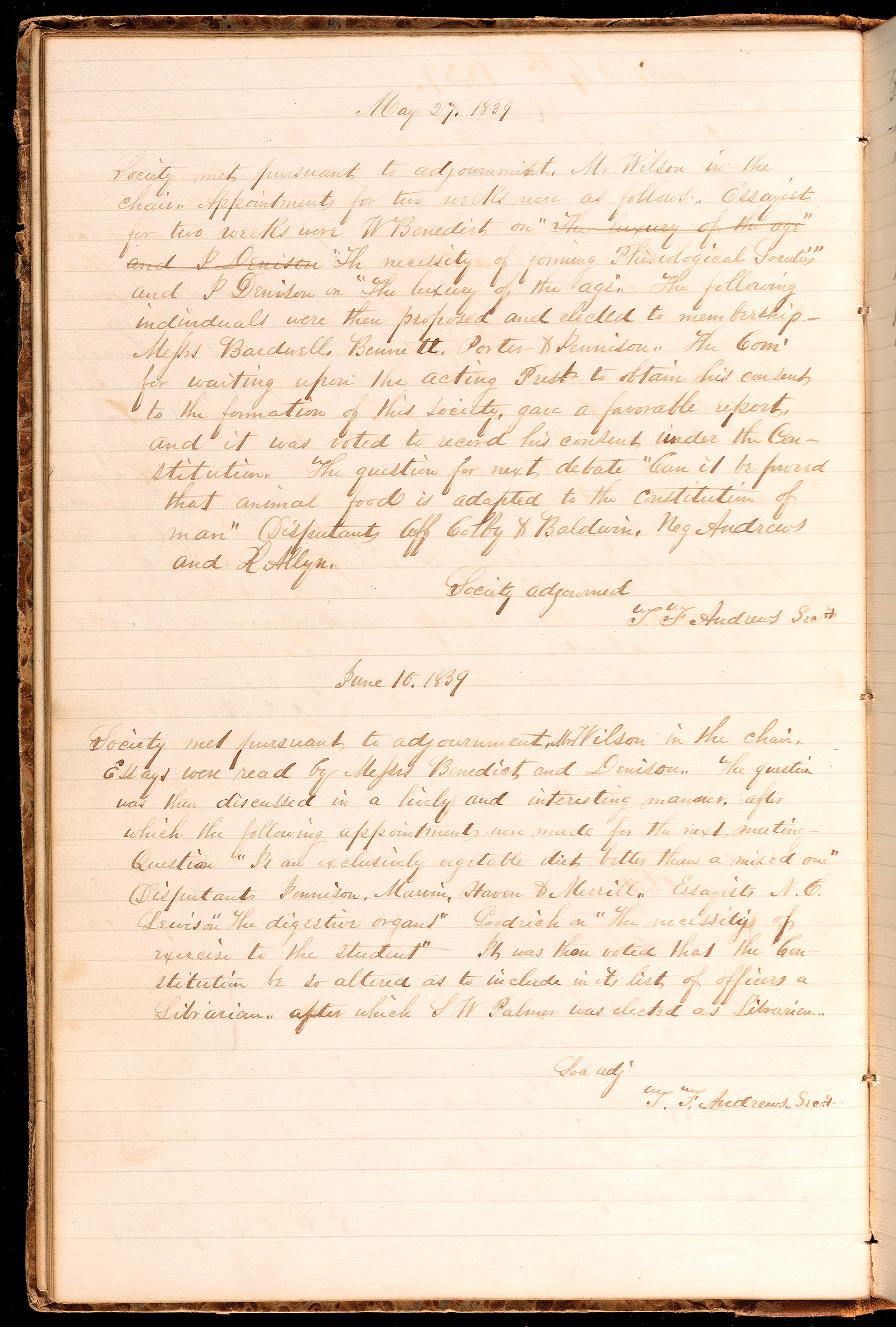HISTORICAL ROW: “A MORE SIMPLE FARE”: THE PHYSIOLOGICAL SOCIETY

Wesleyan’s interest in good health goes back to at least 1839. That year, a group of students formed the Physiological Society. As defined in their constitution, it sought to discover the “causes of disease and premature death” leading to the “unfolding of those laws, a conformity to which, shall secure the greatest degree of health and longevity.”
The society embraced the principles espoused by Sylvester Graham, who advocated a vegetarian—almost vegan—diet and a strict health regimen. His lasting achievement is his invention of the graham cracker. The group heard lectures on a variety of topics, such as the digestive organs, and debated questions including, “Is an exclusively vegetable diet better than a mixed one?”
The society secretary enthusiastically reported the activities of eight students to The Graham Journal of Health and Longevity in 1839. They ate a diet consisting of unbolted wheat flour, Indian corn meal, rice, beans, potatoes, and milk occasionally, “all prepared in the simplest manner.” Some members “at first objected that this would give no variety; but on making out our ‘bill of fare,’ we found no reason to complain of the variety which ‘nature’s best’ affords.”
In fact, the students found their new diet had great positive effects. “Our general appearance has improved very much. We find that time passes more pleasantly than when using flesh, and being in good spirits ourselves we are in good humor with others. We feel less inclination to sleep after dinner than when gorged with beef and gravies—are better prepared to pursue our studies with pleasure and success—and enjoy much clearer minds and can undergo severe and long continued mental application with less prostration of body and mind.”
The society, no doubt, influenced the college meal plan. The 1840–41 catalog states that “for the accommodation of those who desire a more simple fare, a table is prepared by the Steward, from which are excluded, tea, coffee and animal food” at a cost of $1.25 per week. The standard fare, with tea, coffee, and meat, cost $1.50 per week.
After a year, the society dissolved, to be revived in 1842 and remain active for another two years before disappearing for good—although you might say that its spirit lives on in the variety of today’s campus meal options. Another way the society endures is through its library books and record book. After disbanding, some of the books, including Graham’s Lectures on the Science of Human Life (1839), William Alcott’s The Library of Health and Teacher on the Human Constitution (1837), and Silas Jones’s Practical Phrenology (1839), found their way to the college library and, along with the record book, are now available in Special Collections & Archives.


